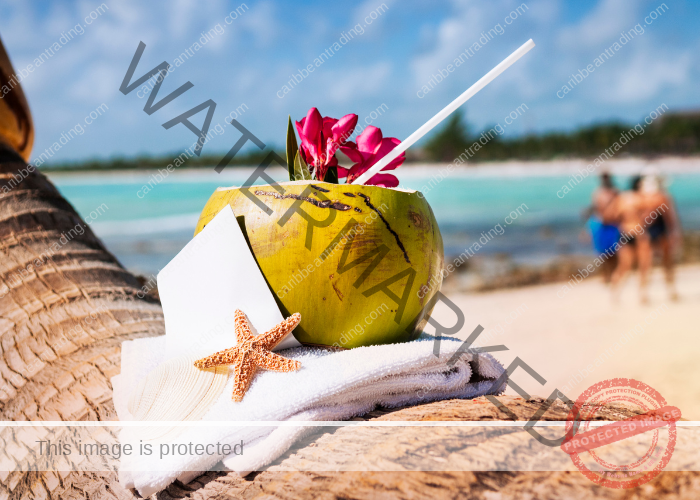Uncategorized
Do you Want to Have a Business in the Caribbean? Tips to Stand Out
Have you ever dreamt of having your own shop? Small business ideas in the Caribbean are pretty normal! Just having your shop there, along with the beaches, crystal waters and a very relaxed lifestyle is something many people want!
It doesn’t matter what you’re into: agriculture, techie stuff, tourism or anything else! You can always start your own business if you execute it properly. So let me give you some really interesting tips to ensure you’ll stand out here!
1- Understanding the Caribbean Market
Before diving into your enterprise adventure, it is essential to understand the intricacies of the Caribbean market. The location consists of multiple nations and isles, each with its personal cultural nuances, financial conditions, and regulatory frameworks.
Conduct thorough market research to discover gaps, patron possibilities, and ability competition in your chosen enterprise. Consider factors along with tourism developments, neighborhood buying power, and regulatory necessities to tailor your commercial enterprise strategy for this reason.
2- Choose the Right Location
Location can make or wreck a enterprise in the Caribbean. While famous traveler destinations offer excessive foot visitors and sufficient opportunities for hospitality and leisure ventures, in addition they include fierce competition and better operational costs.
On the other hand, emerging markets like Belize, Grenada, or St. Kitts and Nevis can also provide a extra conducive surroundings for startups with decrease overheads and untapped niche markets.
Evaluate your goal marketplace and pick a vicinity that aligns together with your business objectives and price range constraints.
3- Embrace Sustainability
The Caribbean is known for its breathtaking natural beauty, but it’s also susceptible to environmental challenges such as climate change, deforestation, and pollution.
There are a few things that every Caribbean shop must follow. As for sustainability, there are some practices that you can implement, not only because it’s morally correct but also because it can attract even more buyers.
Renewable power, using less plastic or just helping other initiatives is enough. All you gotta do is show commitment to a greener world, which will make your reputation higher especially amongst those aware customers.
4- Cater to Local Tastes and Preferences
Did you know that if you wanna succeed in this region with your business you’ll need to understand what locals like? Knowing their preferences about products or services is vital: you’ll need to adapt to their culture so you make a difference against your competitors.
This may involve customizing your offerings to suit regional culinary preferences, incorporating local art and craftsmanship into your products, or providing personalized customer experiences that resonate with the local community. You can use smart labels in your products to make you stand out.
Always keep this in mind: embrace cultural diversity and authenticity! This way you’ll be able to forge stronger connections with your target audience and foster brand loyalty. Isn’t that what you want, after all?
5- Invest in Digital Marketing
So, you want to reach not only locals, but also the whole world. That’s possible too, especially if you focus on digital marketing. How? Invest in digital marketing professionals. There are a lot of companies that can help you advertising, improving your SEO and content marketing so you ensure you’re correctly targetting your audience.
What you must do is highlight selling points. If you show good reviews to customers, you’ll build more trust and be more credible. This ensures that you’re going to attract even more people to your business. Isn’t that great?
Additionally, consider partnering with local influencers or travel bloggers to amplify your brand reach and attract more customers to your business. To identify suitable influencers, utilize an influencer database tailored to your target market and industry.
6- Prioritize Customer Experience
In the hospitality and service-oriented industries prevalent in the Caribbean, delivering exceptional customer experiences can set you apart from the competition.
From the moment a guest walks through your door or interacts with your brand online, strive to exceed their expectations at every touchpoint.
Train your staff to provide friendly and attentive service, personalize interactions based on customer preferences, and promptly address any concerns or feedback. Enhance customer engagement by implementing a qr code generator, allowing customers to easily access personalized promotions, feedback forms, or additional product information.
By prioritizing customer satisfaction and loyalty, you can turn first-time visitors into repeat customers and brand advocates.
7- Adapt to Seasonal Trends
The Caribbean experiences distinct seasonal fluctuations in tourism and consumer demand, influenced by factors such as weather patterns, holidays, and cruise ship schedules.
As a business owner, it’s essential to adapt your offerings and marketing strategies to align with these seasonal trends.
Whether it’s introducing promotions, diversifying your product lineup, or adjusting operating hours to accommodate peak tourist seasons, staying flexible and responsive to market dynamics can help you maximize revenue and maintain sustainability throughout the year.
8- Stay Compliant with Regulations
Navigating regulatory requirements and compliance standards is a crucial aspect of doing business in the Caribbean. Familiarize yourself with local laws, licensing procedures, and tax obligations relevant to your industry and location.
Ensure that your business operations adhere to health and safety regulations, environmental standards, and labor laws to avoid fines, penalties, or legal disputes.
Consider seeking professional advice from local legal and accounting experts to ensure that your business remains compliant and operates ethically within the regulatory framework.
9- Invest in Community Engagement
Beyond simply providing products or services, fostering a sense of community involvement can notably beautify your business’s recognition and patron loyalty inside the Caribbean.
Consider initiatives such as sponsoring local and regional events, participating in charity, or taking part with community corporations on initiatives that benefit the region. After all, all of them can be really useful for the locals!
By demonstrating a real commitment to the well-being and prosperity of the locals, you may construct sturdy relationships and end up a depended on associate within the eyes of both clients and stakeholders.
This investment in network engagement now not most effective differentiates your enterprise but additionally contributes to the social and financial improvement of the Caribbean area.
Conclusion
We get it, starting a business can be hard. It’s very demanding, but there’s also a lot of opportunities to take advantage of if you’re aspiring to be the best of the best, so why not try it?
First of all you gotta address the local market. Go for green initiatives, and try to cater to their cultural customs. If you find the correct partners, you can achieve almost anything too. Simply remember to develop your plans carefully, innovation is also vital. If you focus on customer satisfaction, you’ll thrive and succeed.







